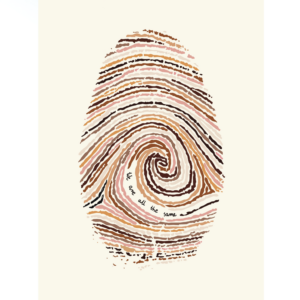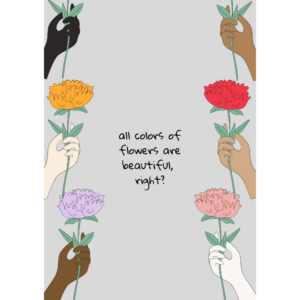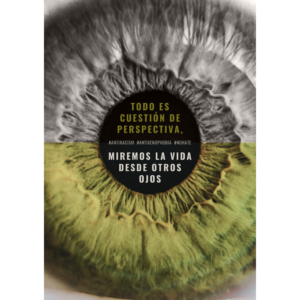Duration: Approx. 40-60 minutes
Introduction
So far, we have mainly discussed civil courage without referring to the digital space. Discrimination, hate and violence can happen wherever people meet, exchange ideas and network – online and offline. Hate on the internet often happens in close connection with hate and attacks in the analogue world.
Hate online can affect everyone. But not all the same. A study on the current status of online hate in Germany shows: Almost every second person (49%) has been insulted online. A quarter (25%) of respondents were confronted with physical violence and 13% with sexual violence. According to their own statements, people with a visible migration biography (30%), young women (30%) and people with a homosexual (28%) or bisexual (36%) orientation are particularly often affected. Almost every second young woman (42%) has received a naked photo without asking.
Therefore, civic courage must also take place online. By creating a social media post/story, as one possibility, you have the chance to start taking action on anti-racism and anti- discrimination online. It is important to talk about real problems, about the fact that people facing discrimination in everyday life and about solidarity on social media. The impact that a post of solidarity on social media can have should not be underestimated.
With this last exercise we encourage you to take the first step against racism and discrimination within your networks.
Everyone can do big things with a little step. It’s just the start that it can be hard, but with every little step, things can change. Social media is very important when it comes to what we read, see and educate ourselves, so it has a big impact on society nowadays.
Where? Instagram/Facebook etc.
Why?
1. To make the first step against racism and discrimination in our networks, social media groups and society.
2. To spread awareness and to be self-aware about the racism and discrimination in unintended cases (to be more sensitive for the subject and self-educate more) (ex: “jokes”, “positive racism”, understanding “cultural/religious appropriation”, …)
3. To reach the target group (target group can be at least one person that experienced racism/discrimination and to spread solidarity and empathy in those cases).
4. To create a bigger impact by tagging the social media accounts of ACCT.
exercise
Create a social media post for anti-racism activism and civic courage on a social media platform.
How to have a post with an impact?
- Explain the context (the caption)
- Provide the post with an image/ graphics (call to action)
- Ask a question
- Know your target (use hashtags for a bigger impact) – it’s important to have the networks that can share your post and then to create a bigger impact
- Use emojis
- Use canva or other apps to make a more creative post
- Tag ACCT, perspekt initiative, …
Debriefing
For debriefing we want to show you the winners of the ACCT poster competition as a way to be active against discrimination in a more creative way. Launched earlier this year, the campaign sought to encourage public engagement in the fight against racism, xenophobia, and discrimination in communities across the European Union. The poster competition was an integral part of our awareness-raising campaign and was aimed at inviting people from all walks of life to share their vision of an equitable society. The campaign will reach 600,000 people both online and offline through various media channels, including social media, newsleders, print media, and a visual campaign on public transportation in Denmark and Germany.
 ANNA MICHALIK,
ANNA MICHALIK,
originally from Łososina Górna, Poland;
currently resides in Kraków.
“I wanted to show that skin color does not change anything.”
 DOMINIKA CZAJA,
DOMINIKA CZAJA,
from Torun, Poland
“Every person deserves equal treatment.
I hope that my posters will make you see that each of us is the same and deserves happiness.”
 LUCÍA ESCUDERO GARCÍA,
LUCÍA ESCUDERO GARCÍA,
from Zalea, Pizarra, province of Malaga, Spain
“I want to emphasize the value of empathy for those who suffer any form of discrimination, focusing on racism.
I dream of an inclusive society, and I know it’s possible if we all want to be a part of it.”